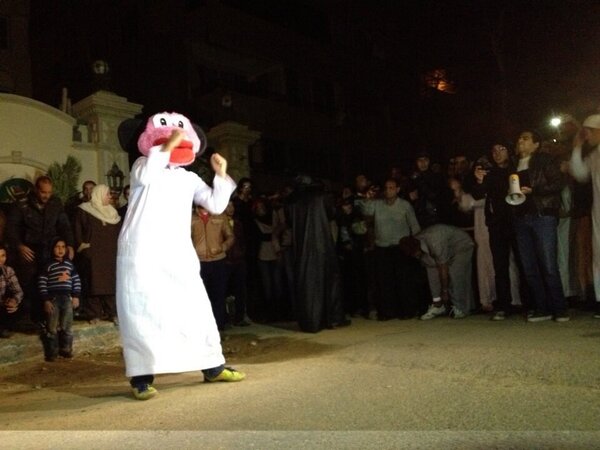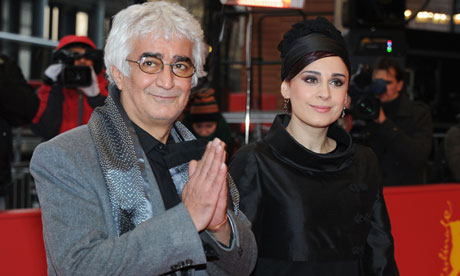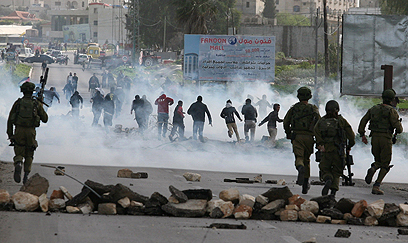By Justin Dorman
Impunity Watch Reporters, Middle East
The latest viral fad that has dominated YouTube in the United States has been the dance videos made to DJ Baauer’s hit, the “Harlem Shake.” The video begins with one person dancing to a combination of hip-hop, house, and crunk music known as trap music, before it cuts to a group of people in costume dancing at the same location. The internet sensation has now taken the Middle East by storm.

While the essence of the videos are entertainment, the viral video has found a niche in the Arab protest movements. Videos have arisen all around the Middle East like Lebanon and Saudi Arabia, but the biggest impacts have been felt in Syria, Tunisia, and Egypt.
In Tunisia, students brawled last week with Salafi extremists outside the Bourguiba Language Institute in Tunis. The Salafi are ultraconservative and tried to stop the shooting of a student made video which they found to be indecent. One of the Salafis held a firebomb, but he was surrounded by students and teachers who kept him from using it. His main concern was that his fellow Muslim brothers were dying in Palestine, and all these students wanted to do was dance.
Shortly after, a younger group of Tunisians from the Père Blanc school filmed their own video without any protest. Upon receiving word of its completion, however, the Tunisian Minister of Education, Abdul Latif Obaid, ordered a criminal investigation of the matter. The Minister who is viewed as more of a moderate leftist pulled this maneuver in order to solidify his cabinet position when the ruling conservative Ennahda Party makes its new choices. This investigation prompted organized protests by students outside the of the Ministry of Education building. These protesters were greeted with tear gas.
In Egypt, approximately seventy demonstrators performed the popular dance just outside the headquarters of the Muslim Brotherhood. The Muslim Brotherhood is the ultraconservative Islamist party that boasts Egyptian President Mohammed Morsi. Besides for performing the “Harlem Shake,” the group of demonstrators chanted anti-government slogans. The group was specifically reacting to last week’s arrest of four pharmaceutical students who were detained for making their own “Harlem Shake” video. The arrested individuals were dancing in just their underwear, which is in violation of their public decency laws.
While the “Harlem Shake” has caused conflict in the two previously mentioned countries, its greatest unifying effect has taken place in Syria. There, a group of adolescents staged a scene that appears to be a fight between Assad loyalists and the Free Syrian Army. Before long, the fight busts out into a dance party with the “Harlem Shake” playing in the background. Posters can be seen in the video that read, “Stop the Violence” and “Do the Harlem Shake.”
For further information, please see:
France 24 – ‘Harlem Shake’ Rocks Deeply-Divided Arab World – 1 March 2013
New York Times – ‘Harlem Shake’ Protests in Tunisia and Egypt – 28 February 2013
The Times of Israel – ‘Harlem Shake’ Stirs up North Africa – 28 February 2013
New York Times – Arab Spring Blues? – 27 February 2013



